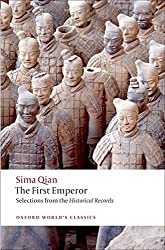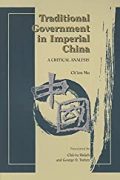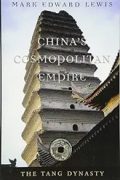
Rating: 7.7/10.
Translation of a few sections of the Shiji (Records of the Grand Historian) by Sima Qian. The whole Shiji is very long, so this work only translates the sections relating to the Qin dynasty. Sima Qian is a historian in the Han dynasty court, but his role was to collect anecdotes about historical figures, quite different from modern historians who care a lot more about the facts. Much of what we know about the Qin dynasty comes from the Shiji; since the Han conquered the Qin, the Shiji portrays the Qin very negatively as brutal semi-barbarians, so you have to be careful not to take the Shiji at face value.
Most of the content in the Shiji comes as biographies of prominent individuals, basically tells history from the perspective of a single person and his associated events. This is written in prose and is the most interesting to read. The annals tell the story overall and in a continuous manner, and the treatises (the smallest section) contain very technical descriptions of ritual sacrifices.
Lu Buwei was a merchant from Qin, and schemed to influence the court and got the prince to take his pregnant wife, so (according to Sima Qian) he is the biological father of Qin Shi Huang. This gives the Qin dynasty an illegitimacy as merchants are considered the lowest class. Lu Buwei falls out of favor and is exiled and he kills himself.
Jing Ke is one of three assassins who tried to kill Qin Shi Huang. He is hired by the state of Zhao in the north, pretends to ally with Qin by presenting an enemy general’s head, but takes out a poisoned dagger and tries to stab Qin Shi Huang. He fails and is killed.
Li Si was an important minister in the Qin court, he’s not originally from Qin but decides to serve Qin which he believes has the most potential. He’s a hardcore legalist and is responsible for the burning of books and burying of scholars. When the emperor died on a trip, he and Zhao Gao conspired to forge the will and plant the weak and gullible son Huhai on the throne, while the legitimate heir Fusu was ordered to commit suicide. Zhao Gao deceives the second emperor and hides him in the inner palace while taking all the power for himself, after some disagreements, he has Li Si executed. Soon after the emperor’s death, the people started to rebel against the heavy taxation and harsh punishments, and the Qin was too disorganized to control them, so the dynasty collapsed just three years after the emperor’s death.
Xiang Yu was a general from the Chu state, he decides to raise an army and rebel against the Qin. He easily defeats the Qin, especially since the Qin generals do not get rewarded for victories so they’re not very loyal to the king. When his army reaches the capital Xianyang, he finds the Han commander (Governer of Pei / Liu Bei) got there first. The Chu and the Han are evenly matched and fight for power for a few years, but eventually Xiang Yu are defeated and Liu Bei establishes the Han dynasty. He is viewed as brave but lacking in humility and wisdom.



